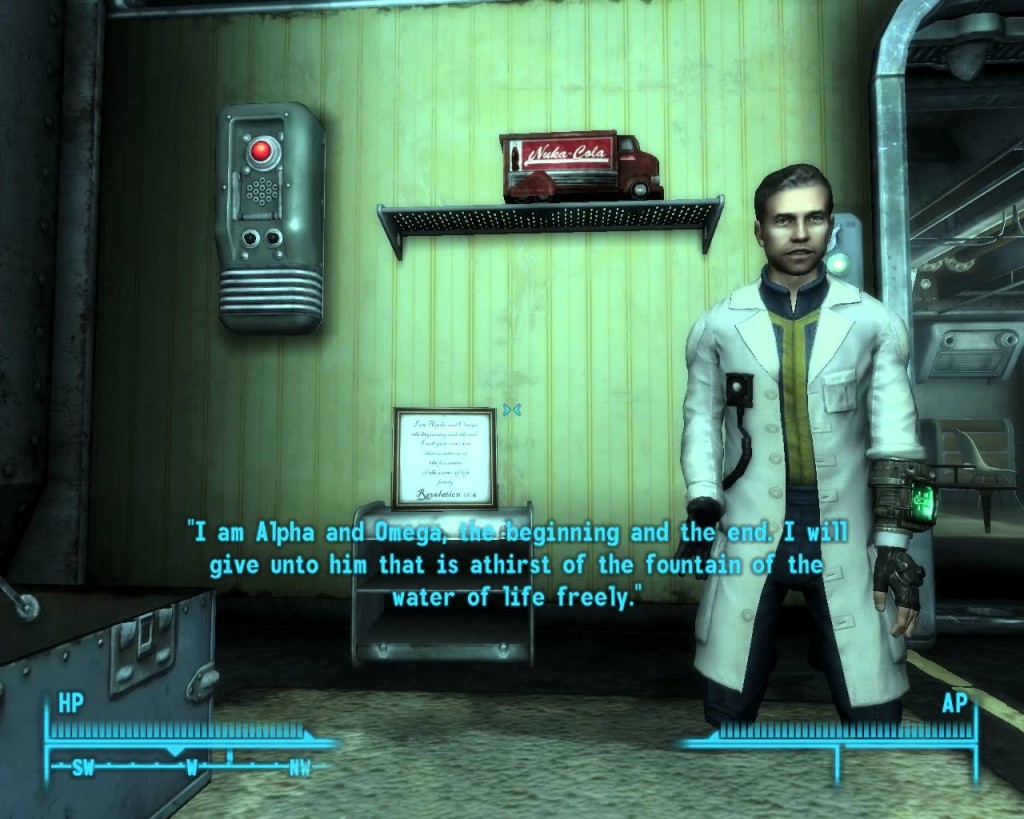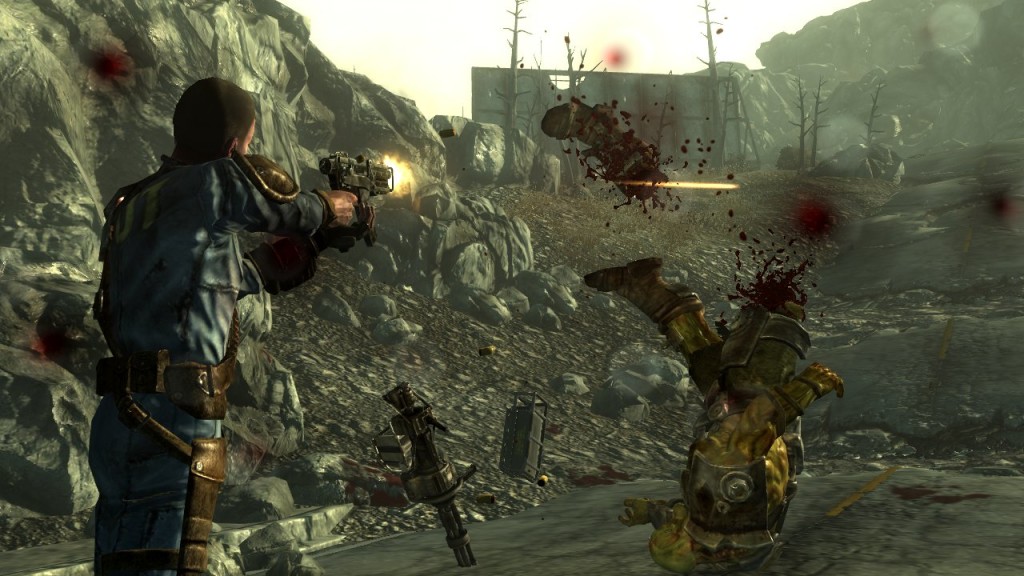Fallout 4’s reviews just came out. But I can’t help but meditate on the Biblical themes of Fallout 3.

My favorite part of Fallout 3 is the very beginning — when you’re a babbling two-year-old who can only say, “dada.” Then your dad (Liam Neeson) comes into the room and reads you his favorite bible verse:
“I am Alpha and Omega, the beginning and the end. I will give unto him that is athirst of the fountain of the water of life freely.”
-Revelations 21:6 (KJV)
I love this scene because it treats the Bible as a formative text for the rest of Fallout 3. Sure the out-of-context Bible verse doesn’t mean a ton by itself, but it establishes the themes of Christ’s self sacrifice as an avenue to everlasting life. And these themes play directly into the game’s original ending. But of course, this gentle introduction is harshly contrasted by the hellscape that is The Capital Wasteland (where you’ll be spending the next thirty-to-fifty hours). Most of the game reflects on gratuitous gory interactions with disgusting creatures and fallen humanity.
The Bible in this case seems to be used more for contrast against a horrible world as opposed to a text about a self-sacrificial God of love who wants to reconcile the world. But that’s because most of us don’t remember the original ending of the game.
Self-sacrifice was the original game’s good ending. You had to sacrifice yourself in order to provide clean drinking water for the whole wasteland. I’ll spare you the intricate details of how this comes to pass if you have yet to play. But I would contest that this was a good, pure, and honest reflection on the Bible verse that established the story’s themes. There were other endings. You could sacrifice others instead of yourself, but that was not the good way to end, and the narrator made sure you knew that.
Sadly, the good ending got shuffled-out when the Broken Steel DLC came out. Broken Steel forced you to pick a non-sacrificial ending that extended your character’s life span (and their level cap) to allow for more missions in the world. Unfortunately, this rendered the “Biblical” ending non-canon. Even though Broken Steel was debatably the most enjoyable DLC campaign for Fallout 3, it also negated the Biblical/self-sacrificial connections to the original story. As such, it trivialized Fallout 3’s original redemptive themes.
It’s easy to forget the Biblical implications of Fallout 3. Nevertheless, we can applaud Bethesda Softworks for releasing a mainstream video game that grappled with Biblical themes, regardless of whether or not they got swept under the rug by revised conclusions. As we prepare for Fallout 4’s release, you can bet I’ll be on the edge of my seat — looking for Biblical themes in the game.

